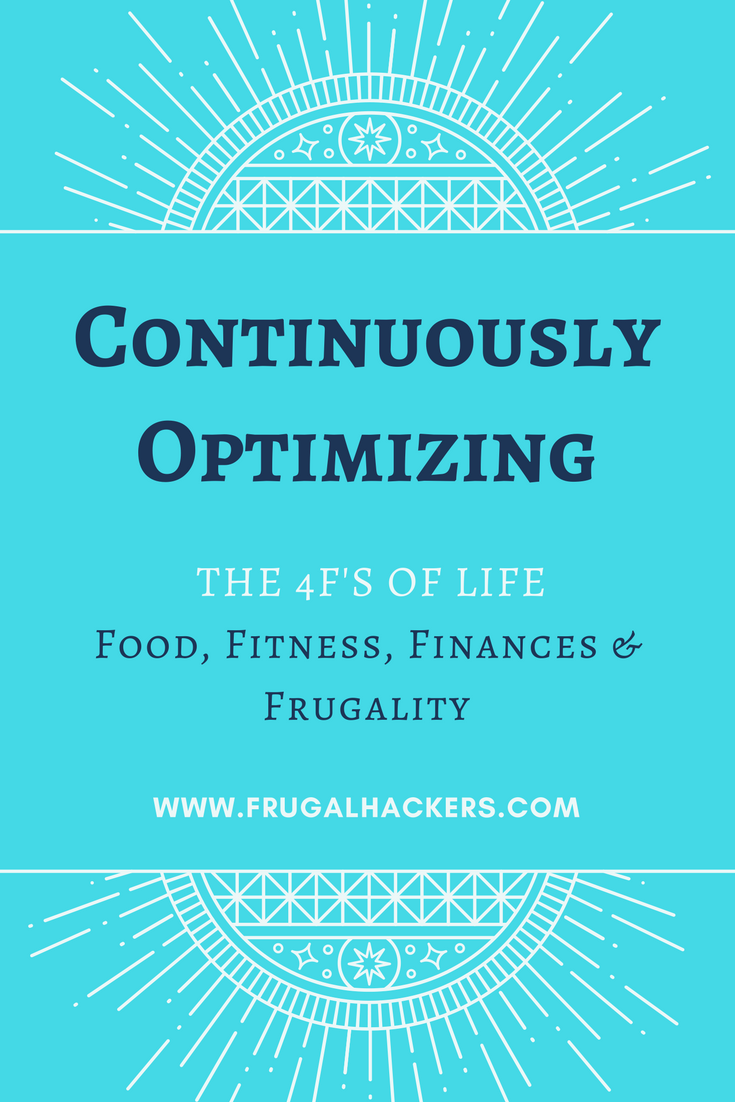In February 2017, The Guardian published this article titled "Scraping by on six figures? Tech workers feel poor in Silicon Valley's wealth bubble."
San Francisco happens to be our home, and being the Frugal Hackers, we're on the polar opposite of the savings spectrum. We feel rich here. We feel our lives are luxurious here. We could even afford to purchase a 3-bedroom condo in this city, with a 20% downpayment entirely with our own money after just 6 years of working. And neither of us makes more than $200k individually.
So, what does a 70%+ savings rate in San Francisco look like? We dove into our expenditure this year thus far to find out. We keep a manually curated spreadsheet filled with every expense we incur, along with its category. So it was fairly easy to put together this mid-year report. We plan on publishing another follow-up update at the end of this year outlining the year's final savings rate.
2017 Highlights
- We saved and invested 65% of our after-tax income in the first half of 2017
- Excluding one-time non-recurring purchases of ~$6k, we saved 72% of our after-tax income
- After-tax earnings of $92k so far this year is comprised only of both our full-time job paychecks. No passive/side hustle income streams. Our visas are very limiting on the kind of passive income we're allowed to have
- Our biggest spend categories were housing (thanks San Francisco), food, transport and a couple of big non-recurring purchases
Spending by Category
Housing
San Francisco is the country's most expensive city in the US in terms of median housing costs. Our monthly housing cost is a shocking $2,870/mo, making up 53% of our total expenses, no surprises there. We included monthly interest payments, HOA dues, property taxes, insurance and home care expenses in this number. We rent out our parking spot for $300/mo and we've treated this as a reduction in housing costs. We've also deliberately excluded the principal portion of our mortgage payments from this number. We think of principal payments as a monthly investment in the real-estate category.
Food
Our second biggest spend category is Food but it's second by a huge margin. Food makes up only 8% of our total expenses. For the last six months, we've spent $1,424 in groceries and $1,097 in restaurants/cafes. We're not into fine dining, but we did go to 3 - 4 fancy-ish restaurants over the past 6 months for friends' birthdays/special occasions. $1,424 in groceries includes other household items as well, like cleaning supplies, shampoo, conditioner, etc. Our actual food-specific grocery spend is much lower, thanks to Costco!
Cooking at home is healthier, quicker and way cheaper than eating out at restaurants. Many of my friends complain that groceries in SF are too expensive. If you're one of them, you might want to read this post on how we shop smartly at Costco. Spoiler alert, the savings are along the lines of 80% compared to Whole Paycheck. The next biggest complaint is that cooking takes too much time. Not going to lie, 2 years ago, I was in this boat as well. I just did not have 2 hours each weeknight to cook dinner + clean up afterwards. Over time I've found little tricks to get significantly faster at cooking. I make 90% of our meals fresh from scratch, and spend about 30 minutes in the kitchen on average. We make a lot of one-pot, one-shot meals in our Instant Pot - we like to keep our meals simple at Frugal Hackers HQ.
Transport
We don't own a car and rent out our parking spot for $300/mo. Our transport costs are mainly bus/commuter train fares and Uber/Lyft trips. We bike to work a couple of times a week (~10-11 mile round trip). We try to walk and take public transit as much as possible, but given San Francisco's horrendous public transit infrastructure, Uber and Lyft rides are more frequent than ideal. Mrs. FH (i.e. me) splurges a lot more on Uber than Mr. FH, almost 3.5x more. The absolute dollar amounts are not significant, but it's something to work on in terms of our frugality. At least most of the Uber rides are subsidized UberPool rides rather than pricier UberX.
Miscellaneous Non-recurring Purchases
What's with that whopping $6k in miscellaneous expenses? Bikes! Both Mr. and Mrs. FH got brand-new Carbon Fiber road bikes this year. We enjoy long-distance cycling and see this purchase as an investment in our fitness and overall happiness. We rode ~700 miles of training rides between January - April of this year and did a 100-mile century ride in May. We also use our bikes to ride to work. Right after we bought our new bikes, we sold our old bikes for a decent sum to cover the cost of the new bikes. Furthermore, the expensive bikes helped us reach the minimums required for huge new-member credit card signup bonuses.
Summary Chart
What does your spending look like? Do you think it's possible to live frugally in your city as well?




